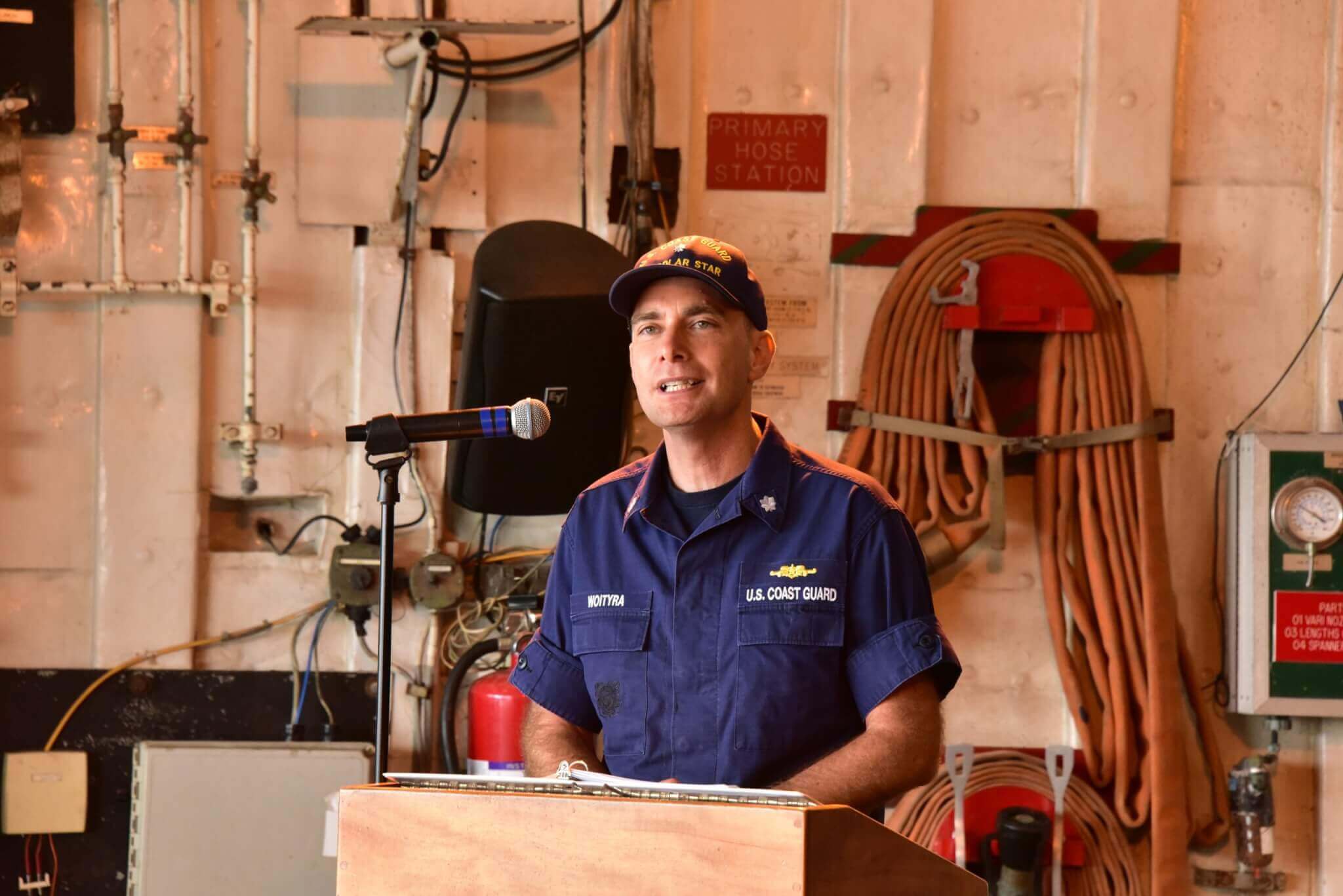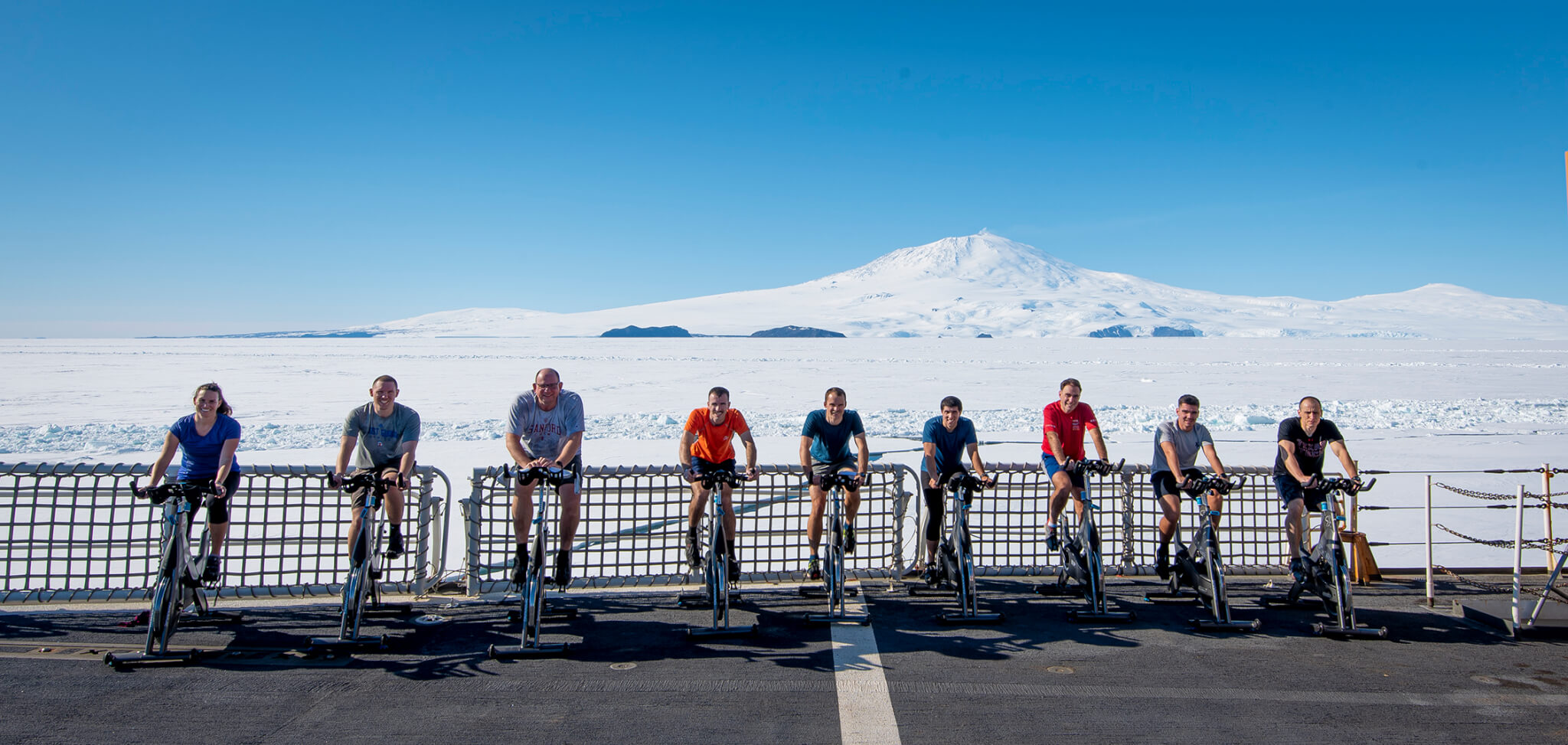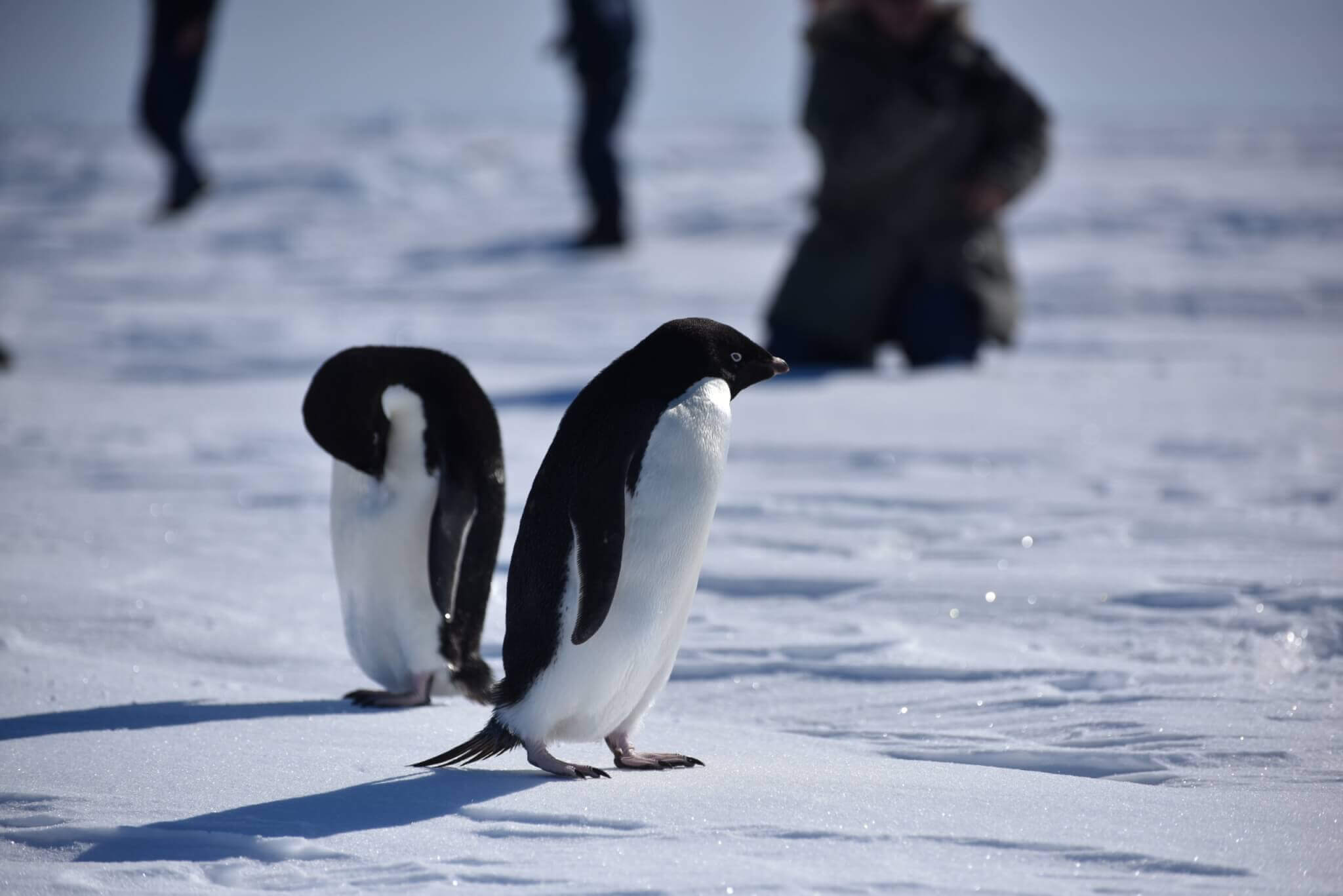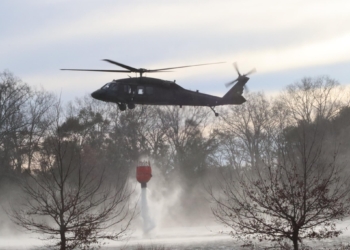The newest commanding officer of America’s only heavy icebreaker is no stranger to the vessel.
The Coast Guard has been conducting ice operations since 1867, with a 399-foot heavy icebreaker called the Polar Star. Its presence is vital for the continuation of scientific research in Antarctica and has conducted Operation Deep Freeze deployments annually since the ship’s reactivation in 2014. The Polar Star’s primary objective includes breaking a channel through the fast ice to resupply the McMurdo Research Station in the Ross Sea, according to a press release. Resupply ships use the channel to bring food, fuel and other supplies to support a year of operations by the U.S. Antarctic Program.
Capt. William Woityra assumed command of the cutter in June of 2020, but it is not his first time serving aboard it.
“I graduated from the academy in 1999 and my first assignment was the Polar Star. I got here in July and we sailed for Antarctica in November. I have been icebreaking my entire career; I guess I caught the icebreaking bug,” he said.
After leaving the Polar Star the first time, Woityra made his way from Maine through Cleveland, breaking ice. From there he became the operations officer on the USCG Cutter Healy and completed five Arctic research missions, one of which included a historic sailing to the North Pole in 2015. He also spent time at Coast Guard Headquarters in Washington, D.C., working in polar icebreaking policy.

Woityra then spent a year studying in Finland as a cultural ambassador and spent time underway on their icebreakers, learning and teaching.
Before taking command of the Polar Star, he was the executive officer for two years. Despite the Polar Star being one of the most challenging assignments in the Coast Guard, he was ready to sign on for another two years as her captain.
“I said absolutely, there was no hesitation. … The opportunities and experiences are incomparable,” Woityra said. “When we are working, we are supporting the National Science Foundation. There is a logistical element to our mission. By creating a channel so that a fuel tanker and cargo ships can make their way to Antarctica; they can do really important science,” he explained.

But they aren’t just supporting scientific research and guarding the environment; they are serving national security interests too.
“We are the lifeline that is providing the logistical support so that the United States maintains a leadership role in Antarctica. … by exerting a positive influence to ensure that the environment is protected and so that we can find out more about climate change in these places that are so far away and bring that information back home,” Woityra explained.
It’s a lot of hard work in harsh conditions, but the crew of the Polar Star knows how to have fun too.
“One of the very first things we do is we get into the ice and grant what we call ‘ice liberty’, we put the brow down and put the crew out there on the ice. They’ll be playing football out there with the penguins wandering around them. One guy even brought a snowboard and a kite surfing rig and he was kite surfing on the snowboard across the ice,” he said with a laugh.

The captain also shared that they have a lot of fun on the way down to Antarctica too, with port calls in countries like New Zealand, Tahiti and Australia.
“We are gone on mission about four months a year; we leave around Thanksgiving and get back around the end of March. In addition, because the ship is so old and there is only one of us, we go to dry dock every single year. The ship just gets beat up,” Woityra said.
Although the ship is homeported in Seattle, the drydock can be anywhere.
“For six out of the last seven years, it’s been in California,” he said, which means the crew spends upwards of 300 days away from home.
More Coast Guard news: 6 new programs just announced.
This makes things extremely challenging for crew members with families. The Coast Guard is working on getting a multi-year contract signed so that going forward everyone knows where the drydock will be for five years at a time. This will allow families to make the decision where they are going to live, so they can spend more time with their coasties.
“It’s an incredibly exciting mission and I consider myself so lucky to go to these amazing places and serve with the incredible men and women on this boat. They are the most proficient and hardworking coasties I’ve ever worked with,” Woityra said, adding “to be a polar explorer, is unlike anything else folks will do anywhere else in the Coast Guard.”
Read comments






































